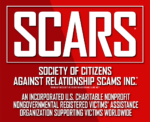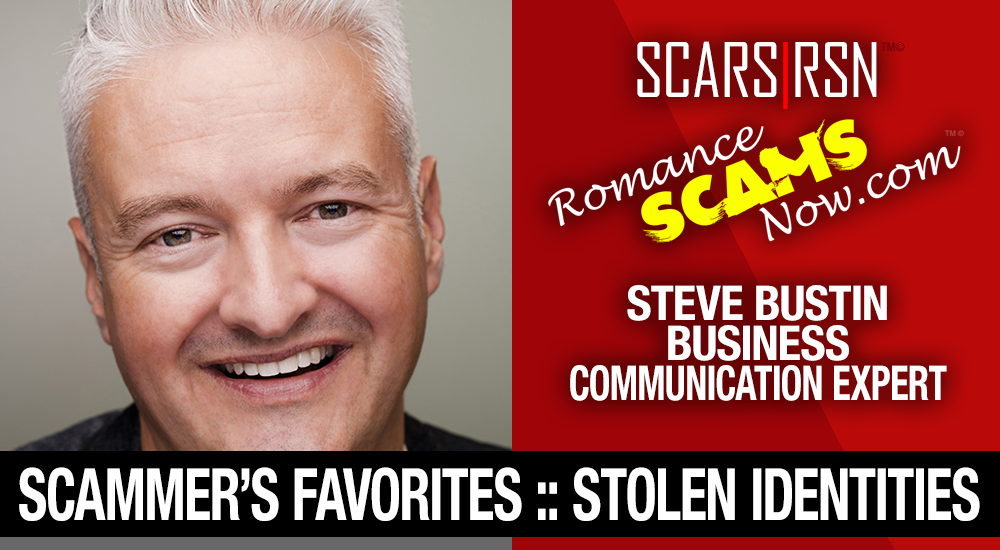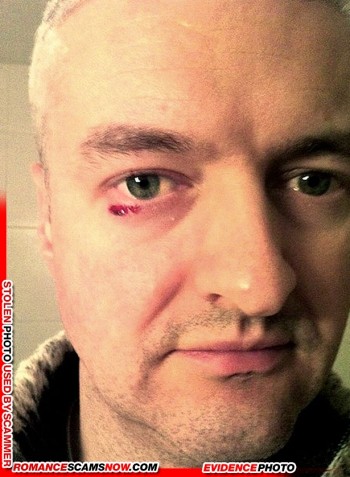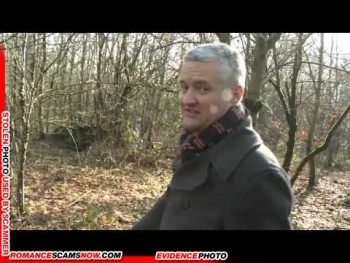You Know This Guy!
Steve Bustin
Public Speaker
Impersonation Victim
You Have Seen His Photos Before!
Steve Bustin Is Another Scammers Choice Award Winner
Of course, you don’t really know Steve Bustin, since these are stolen photos used by African Scammers, but he is popular! If you see his photo on a dating site – guess what? He is being used by a Scammer!
Here is a gallery of Steve Bustin photos we have found:
His Story: Steve Bustin
‘You don’t know me, but I thought I knew you…’ I sighed when I glanced at the email on my phone.
It was from a woman called Constance, a complete stranger to me, who was under the impression we’d been in a relationship for several months.
It has become an all too familiar tale. Over the past two years, my pictures have been used to scam 11 women on dating websites. These are just the ones I know about, the real number could be much higher.
Because I work as a keynote speaker and public speaking coach, social media has always been an important part of my business as well as my social life – it’s how I find work as well as keep in touch with clients. I’d always been happy to share pictures of everything from holidays by the pool to work speeches, to hanging out with my black Labrador, to fancy dress parties.
But as I read the rest of the email from Constance, I felt my frustration grow. I rang her and listened as she explained she’d met a man called Martin Peterson on Elite Singles.
He said he was a widower, just like Constance, and claimed to be the son of an American diplomat who worked as an independent investor and lived in north London. Alongside his bio were several pictures of me, grinning at the camera. He claimed to be 58 – a bit of a cheek, seeing as I’m 46!
Constance had joined the website hoping to find love after losing her husband three years earlier, and Martin had seemed kind and understanding. He was interested in everything about her, texting her every morning to wish her a nice day, and ringing her for cosy chats in the evening. It’s a story I’ve heard time and time again.
She forwarded me the pictures Martin had sent her, and I shuddered when I saw one of me and my sister, who he claimed was his dead wife. It didn’t take me long to convince Constance I wasn’t the man she’d been talking to, especially when I told her she wasn’t quite my type. I’ve been with my husband, John, for 16 years, and happily married for eight.
Constance had begun to be suspicious of Martin when she noticed his hair colour and style changing within the space of a few hours. He claimed he was on a business trip, and sent her a snap of me sitting in a hotel garden having breakfast, with my curly grey hair in need of a trim.
Later in the day, he sent a second snap of me by the pool, in which my hair was shorter and darker. In fact, these pictures had been taken several years apart and ‘harvested’ from my Facebook account. She began to look carefully at all the pictures he had sent, and noticed some discrepancies.
Researching dating scams online, she found a way to find out where a picture had originated. By dragging a picture of Martin into a Reverse Image Search on Google, she discovered the pictures of the man she’d believed to be a widowed Danish investor were actually of me, a gay public speaker from Brighton.
When she confronted the scammer, he told her he’d Skype her later to prove that he was who he said he was. This was new to me: I knew that scammers were using my pictures, but I couldn’t imagine how on earth he’d pull off a video call. But with the help of a tech-savvy niece, Constance managed to record the call. My skin crawled as I watched footage of me sitting in my spare room, chatting away to Constance.
But it wasn’t my voice. The scammer had found an old recording I’d made years earlier to promote my business, and slowed the footage down, pausing it every now and again to make it look as if it were a poor, juddery connection. He’d added his own voice on top, and the results were really quite unpleasant. I knew it wasn’t real, of course, but I could see how convincing it is. That’s when it started feeling really scary.
Fortunately, Constance didn’t hand over any money. But other women have, including one woman who lost thousands of pounds. The scammer, or scammers, prey on older women who are often widowed or divorced and use a predictable formula: first, they gain their trust and bombard them with attention; then they say they are travelling abroad for work, where they are involved in an accident. Finally, they ask the woman to transfer money for medical treatment or flights home.
A few years ago, I had a close encounter with a rosebush and scratched my face. Unthinkingly, I posted a pic online of me with blood on my face. This picture has now been used by the scammer several times – he sends it over alongside a picture of a smashed-up car, and says he’s been involved in a serious accident. It’s only a tiny amount of blood, and it seems absurd to have walked away from a crash with a scratch like that, but it seems to work.
Several women have shown me messages I’ve supposedly sent, and it’s eerie to read them. The scammer is charming and convincing – once, when a woman became suspicious, he sent her a picture of a passport with my face Photoshopped onto it. It seems he’ll do anything.
I’ve done everything I can to try to stop this from happening, but now the pictures are in the public domain, I can’t get them back. The response from the dating websites has been appalling – they tell me they take customers’ security very seriously and have verification processes… but these processes don’t work. I’ve also reported them to Action Fraud, but because I haven’t lost out financially myself, there’s little they can do.
These days, I’m a lot more conscious of what I post online. I’ve changed my privacy settings on social media, something I hated doing because I’ve always been very open. I suppose my account was targeted because I had such a range of photos available, and the scammer could build a whole life from there. I don’t imagine I was picked for being particularly handsome – in fact, I wonder how ugly the scammer must have been for my pictures to have been an upgrade!
An expert told me that once my pictures had been skimmed from my accounts, they had probably been sold on as a bundle on the black market. I now encourage all my friends and family to be wary about what they post – once they’re out there, there’s nothing you can do to control where your photos are used.
My husband sees the funny side of it, although, of course, it’s very serious because these women have been duped. It’s a weird feeling that I don’t know how many women I’m currently ‘dating’ around the world. I want to find as many as I can who have been scammed by someone who looks like me, throw a party for them, and invite some single men to see if we can put it right – straight guys, of course…
[Article Source: https://www.mirror.co.uk/news/real-life-stories/how-your-photos-can-stolen-12274483]
Do you have or have seen other photos of Steve Bustin? Send them to us on our Report Scammer form »
WARNING:
Do Not Contact Him – You Do Not Have A Relationship With Him!
He Does Not Want To Hear From Women Who Have Fallen In Love With His Face!
He Is A Victim Also And Deserving Of His Privacy And Respect
He Knows His Identity Has Been Stolen And Used By Scammers

SCARS™ Team
A SCARS Division
Miami Florida U.S.A.
TAGS: Steve Bustin, Stolen Identity, Stolen Photos, Impersonation, Romance Scam, Fake Female, Imposter Scam, Love Scammer, Romance Scammer, Ghana Scammer, Nigerian Scammer, Fake Men, Fake Profile, Fake Identity, Dating Scams, Men Dating Scammers, Scammer Gallery / Fraudster Album, Steve Bustin Photos Used By Fraudsters, Steve Bustin Photos Used By Scammers, Steve Bustin Stolen Photos, Stolen Image
NOTICE: The above images are presented in the public interest to help prevent further unlawful use and impersonation of the real person pictured. No accusation is being made against the real person and in fact, we believe them to be completely innocent of any wrongdoing. These images have been stolen and used by criminals to defraud others.
END
Tell us about your experiences with Romance Scammers in our Scams Discussion Forum on Facebook »
FAQ: How Do You Properly Report Scammers?
It is essential that law enforcement knows about scams & scammers, even though there is nothing (in most cases) that they can do.
Always report scams involving money lost or where you received money to:
- Local Police – ask them to take an “informational” police report – say you need it for your insurance
- Your National Police or FBI (www.IC3.gov)
- The SCARS|CDN Worldwide Reporting Network HERE or on www.Anyscam.com
This helps your government understand the problem, and allows law enforcement to add scammers on watch lists worldwide.
Visit our NEW Main SCARS Facebook page for much more information about scams and online crime: www.facebook.com/SCARS.News.And.Information
To learn more about SCARS visit www.AgainstScams.org
Please be sure to report all scammers HERE or on www.Anyscam.com
All original content is Copyright © 1991 – 2020 SCARS All Rights Reserved Worldwide & Webwide – SCARS/Romance Scams Now & SCARS/Society of Citizens Against Relationship Scams are all trademarks of Society of Citizens Against Relationship Scams Incorporated






















ive tried and tried to find where i can put a name in to see if he comes up on scam list. quite frankly this site has been disappointing
That feature has been suspended and will be turned back on in August